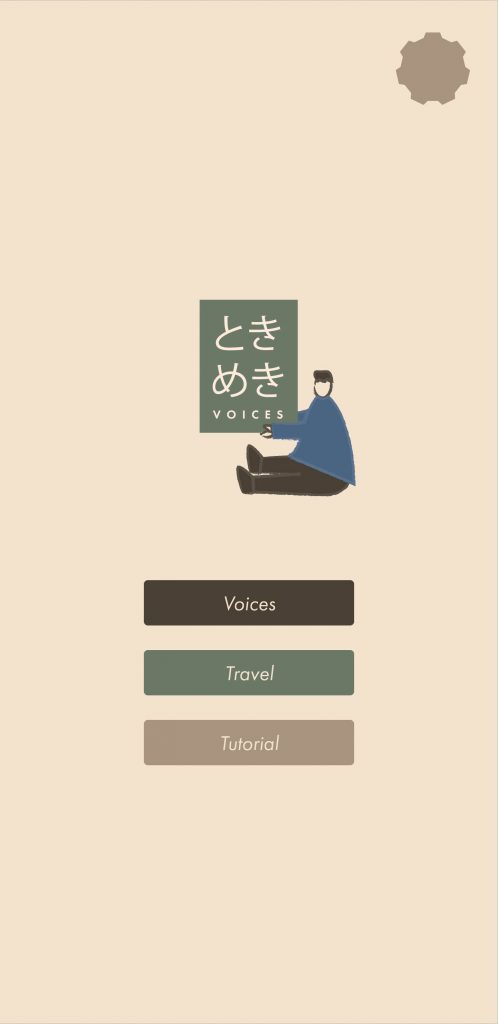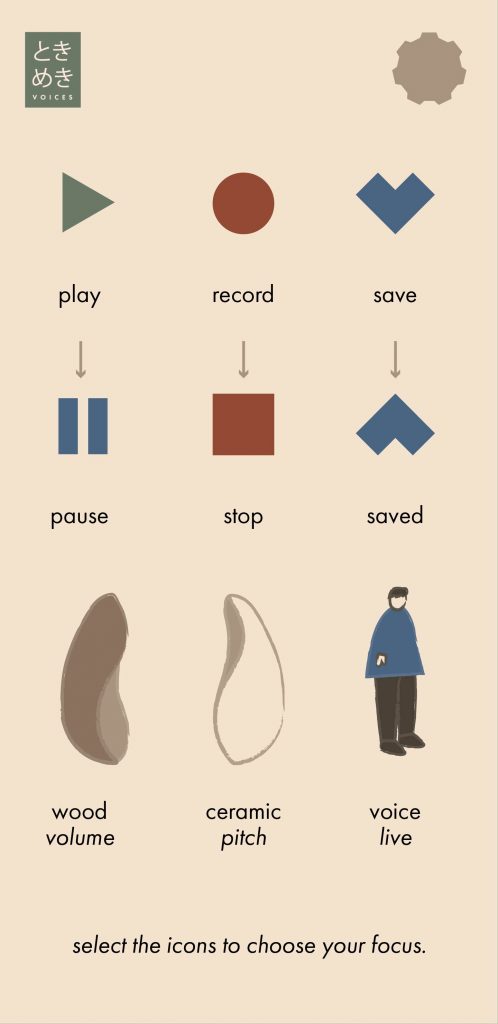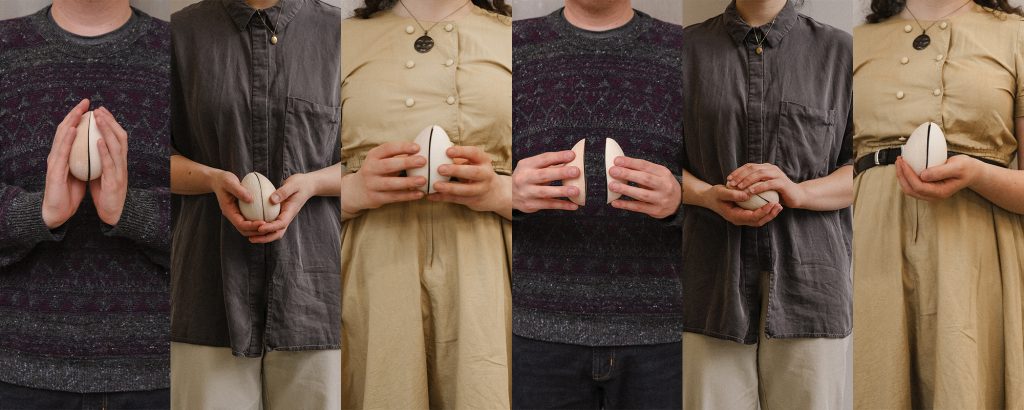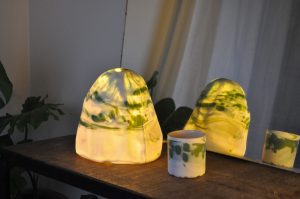ときめき voices
Laura Escueta
Speaking through language, learning through touch.
モノではなす、さわってわかる。

“Tokimeki Voices” is a project that explores the relationship between haptic memory, the qualities of the voice, and the rhythm of language. The title uses a Japanese word; encountered during an exchange in Hiroshima, Japan. Friends, peers and professors struggled to define the word, but gestured and emphasized that it was a feeling. It is small words like this that makes the experience of learning languages “tokimeki,” a joy.

The device was made to fit comfortably in the hands.

It is made up of wood and ceramic halves that can be separated to reveal a metal plate.

Depending on the pitch and volume of the person speaking, the device will vibrate, allowing the user to “feel” the speaker’s voice.



The journey to learning a language tends to begin with a textbook, Youtube videos, and lots of writing. However, when we are communicating, we use more than that: gestures! So, if meaning comes through touch as well, why not engage this sense when learning? By engaging materials that are used in instruments as well as vibration, I hope users can draw parallels between how they engage with music and how they engage with language. While this is not meant to be a translation device, an accompanying app can help with tracking progress in a more concrete way.




While there are a variety of reasons to learn a language, here are a few scenarios…
“The Academic”
While they may be studying for fun or for professional reasons, they’ve taken an interest in and have a passion for working on their accent and verbal communication. This user would most likely use the app to check their progress and improve at their desk.
“The Traveller”
This user may already have begun their studies, but they are struggling to hear differences between words. They use the device to help with hearing native speakers at their natural speed.
“The Everyday”
This user is likely fluent in the language and has no problems with pronunciation. They would use the device to feel the voice of their loved ones. If they are not already fluent, they may use it to help with idioms or other advance elements.






